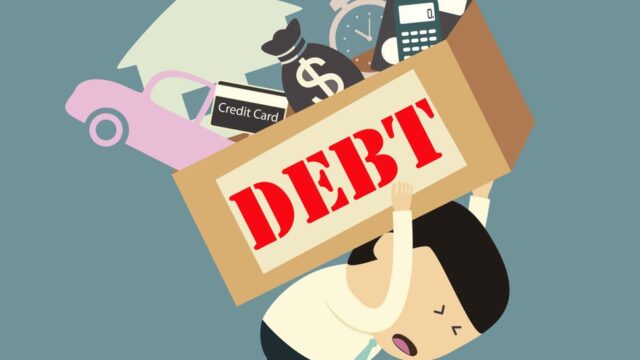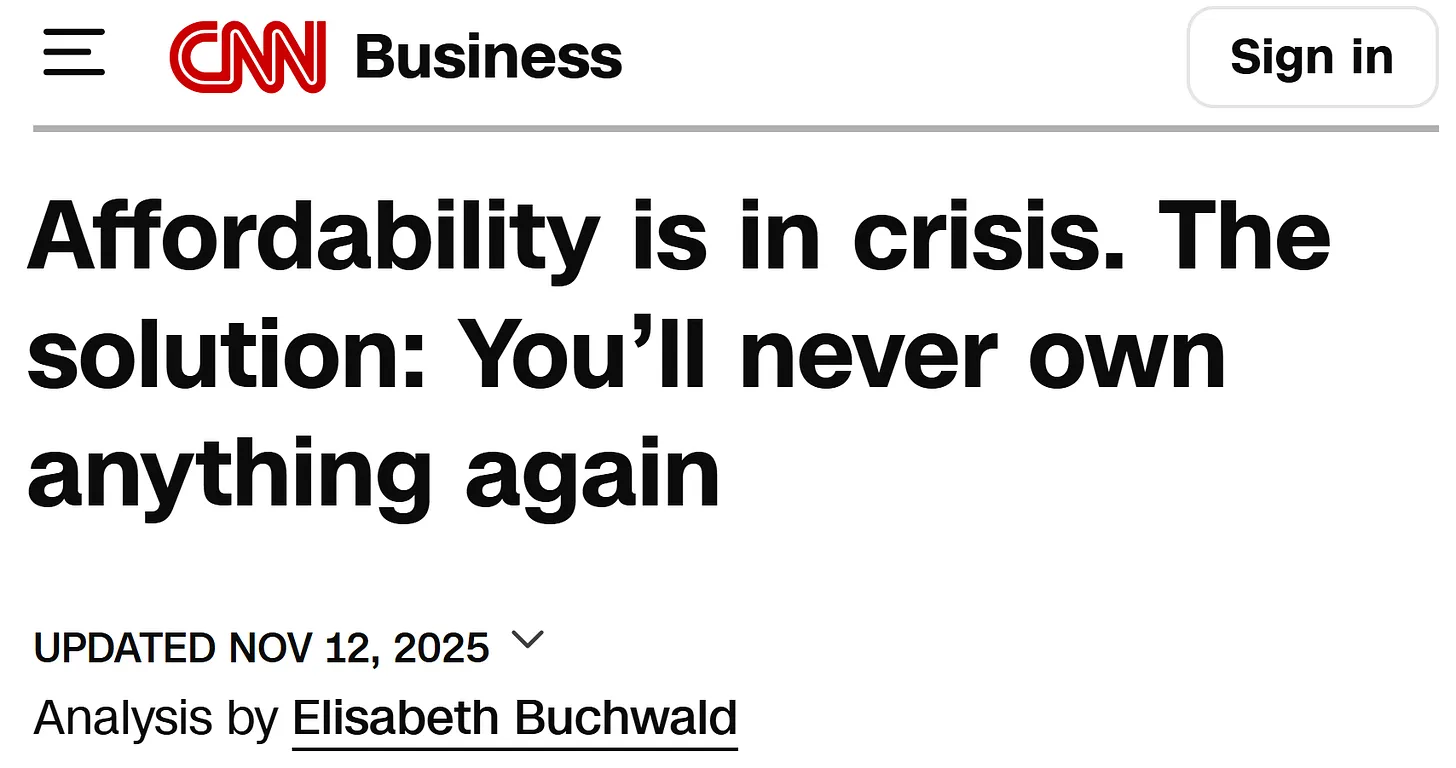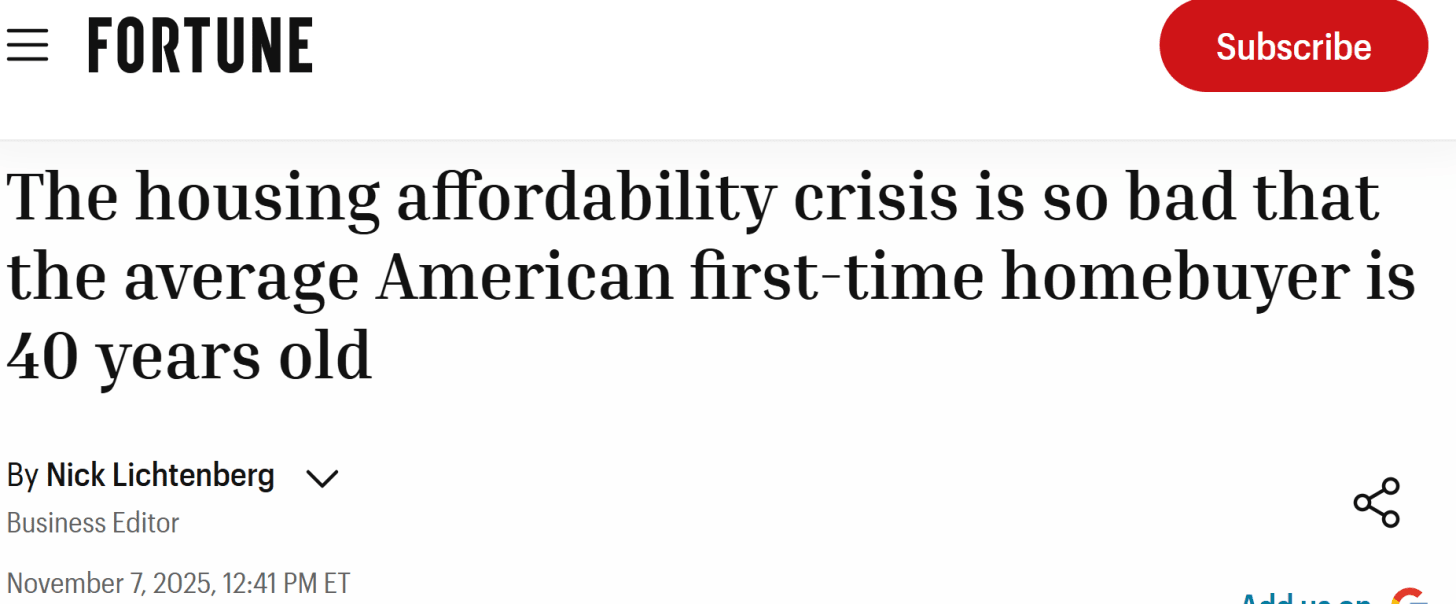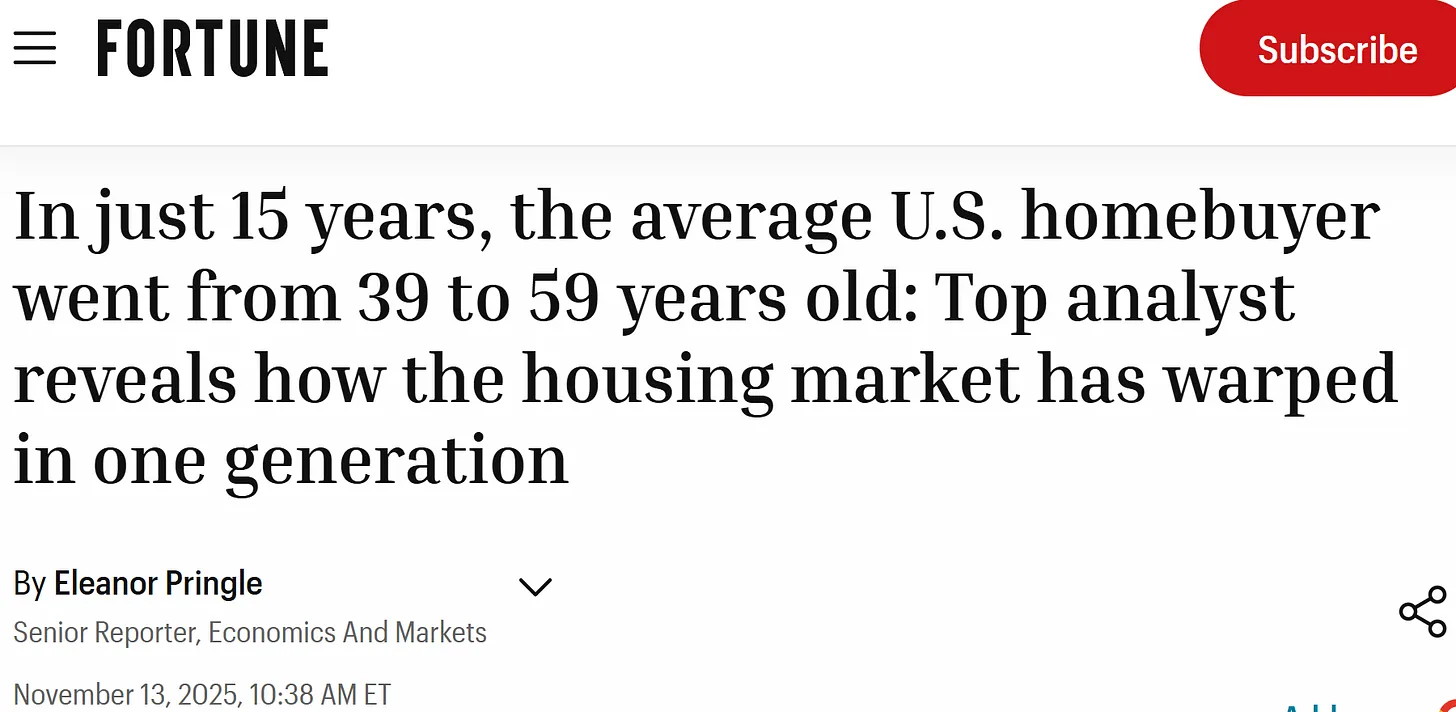The Corporate Media Continues to Push the WEF Narrative of ‘You’ll Own Nothing and Be Happy’

The regime says we’ve abolished slavery. That’s not true; it only developed further and turned us into free-roaming cattle, and what we have today makes the plantation system look like child’s play.
As the cost of living continues to rise for many Americans, many are slowly realizing, or have already realized, that owning most things is unattainable. This confirms the World Economic Forum’s statement that by 2030, we will “own nothing and be happy”—a slogan quietly introduced in 2015 when few people were paying attention, writes The WinePress .
Furthermore, around the same time, the WEF published an essay describing what life would be like in 2030. After some people pointed this out after 2020, the author issued a statement claiming this shouldn’t be taken literally, but people didn’t believe him, and the WEF eventually quietly removed the article.
The article reads as follows:
“This is how life in my city could change by 2030.”
Welcome to 2030. Welcome to my city—or should I say, “our city.” I own nothing. I don’t own a car. I don’t own a house. I don’t own any appliances or clothes.
That might seem strange to you, but for us in this city, it makes perfect sense. Everything you previously considered a product has now become a service. We have access to transportation, housing, food, and everything we need in daily life. Gradually, all these things became free, so it no longer made sense for us to own much.
First, communication was digitized and free for everyone. When clean energy also became free, everything moved very quickly. Transportation prices dropped dramatically. It no longer made sense for us to own cars because we could order a self-driving car or a flying car within minutes for longer trips. We started traveling in a much more organized and coordinated way when public transport became easier, faster, and more comfortable than cars. Today, I can hardly believe we accepted traffic jams and congestion, not to mention the air pollution from combustion engines. What were we thinking?
Sometimes I use my bike when I visit friends. I enjoy the exercise and the ride. It’s like my soul is on a journey. It’s funny how some things never lose their fascination: walking, cycling, cooking, drawing, and growing plants. That makes perfect sense and reminds us how our culture was born from a close connection with nature.
In our city, we don’t pay rent because someone else uses our free space when we don’t need it. My living room is used for business meetings when I’m not there.
Every now and then I decide to cook for myself. It’s very easy: the necessary kitchen appliances are delivered to my home within minutes. Since shipping is free, we no longer have all these things in our house. Why would we keep a pasta machine and a crêpe maker in our cupboards? We can simply order them when we need them.
This has also facilitated the breakthrough of the circular economy. When products become services, no one is interested in things with a short lifespan. Everything is designed with sustainability, repairability, and recyclability in mind. Materials circulate more quickly in our economy and can be relatively easily converted into new products. Environmental problems seem far away because we only use clean energy and clean production methods. The air is clean, the water is clean, and no one would dare harm nature reserves because they are so valuable to our well-being. Cities have abundant greenery, and plants and trees are everywhere. I still don’t understand why we used to fill all the free space in the city with concrete.
Shopping? I can’t really remember what that is anymore. For most of us, it’s become a selection of things we want to use. Sometimes I enjoy it, and sometimes I just want the algorithm to do it for me. It knows my taste better than I do myself by now.
When AI and robots took over a large portion of our work, we suddenly had time to eat well, sleep well, and spend time with other people. The concept of rush hour no longer makes sense, because the work we do can be done at any time. I’m not sure I’d even call it work anymore. It’s more time to think, create, and develop.
For a while, everything became entertainment, and people didn’t want to deal with difficult topics. Only in the last few years did we discover how to use all these new technologies for better purposes than just passing the time.
My greatest concern is for all the people who don’t live in our city. Those we’ve lost along the way. Those who decided all this technology was too much for them. Those who felt redundant and useless when robots and AI took over a large portion of our jobs. Those who resented the political system and turned against it. They lead different lives outside the city. Some have established small, self-sufficient communities. Others simply stayed put in the empty, abandoned houses of small 19th-century villages.
Sometimes I get annoyed that I have no real privacy. There’s nowhere I can go without being recorded. I know that everything I do, think, and dream is being recorded somewhere. I just hope no one will use that against me.
All in all, it’s a good life. Much better than the path we were on, where it became so clear we couldn’t continue with the same growth model. We had all those terrible things: lifestyle diseases, climate change, the refugee crisis, environmental pollution, completely overloaded cities, water and air pollution, social unrest, and unemployment. We lost far too many people before we realized we could do things differently.
But for something as fictional and hypothetical as the WEF claims, it does indeed appear to be unfolding as predicted in the article.
Last year, The Wall Street Journal published this utterly ridiculous, propaganda-driven article suggesting that some Americans have already embraced this lifestyle—a life where they don’t even own the shirt they’re wearing, just as the WEF had predicted. The article was titled “The Extreme Renters Who Own Nothing, Not Even Their Jeans; It’s Not Just About Leasing Your Car. Christmas Trees, Camping Gear, Even Coffins Can Be Rented.”
Well, the mainstream propaganda ministry is again busy spreading a similar message.
CNN is the latest culprit, with a headline that sums it up perfectly: “Affordability is in crisis. The solution: you’ll never own anything again.”

The article begins with the words: “Persistent inflation is making the cost of living unbearable for many Americans. A number of innovative solutions have emerged, but they all have one thing in common: they are driving consumers deeper into debt.”
The authors then cite Trump’s concept of a 50-year mortgage, which would financially ruin someone for the rest of their life, given that the average homebuyer is currently in their early forties. Anyone foolish enough to take out this mortgage won’t even live long enough to pay it off, and even if they somehow manage to pay it off, they’ll die a few years later.


The interest on this is almost twice as high as a 30-year mortgage, which was already insane at the time, but I think Trump said, “Hold my beer.”
Moreover, I recently published an article stating that, according to analysts at UBS, governments will look for ways to take away pensions and inheritances from the shrinking older generations to pay off debt (which, in reality, means the elite will pocket this money). Since there will certainly be fools who sign up for this and perhaps die, this mortgage will simply be passed on to someone else, who will now have the “misfortune” of also being saddled with this debt.
The CNN article goes on to discuss “Buy Now, Pay Later” (BNPL) applications for financing weekly living expenses.
“But increasingly, consumers – especially young people – are making purchases they might otherwise not be able to afford, as evidenced by the recent increase in payment arrears.
A Federal Reserve survey of BNPL users published last year found that “adults who report being less financially affluent and those who appear to be experiencing liquidity or credit constraints were not only among those most likely to use BNPL, but most of these consumers also reported using BNPL because it was the only way they could afford purchases.”
The WP cited an April report from Lending Tree that found 25% of Americans use BNPL apps to pay for groceries.
But BNPL companies are in their own credit bubble and live on credit.
Meanwhile, total consumer and household debt continues to reach new record highs, CNN reports. According to the latest Federal Reserve data, Americans are also increasingly falling into serious delinquency.
Creditworthiness has declined this year to a level not seen since the Great Recession. When a person’s creditworthiness declines, financing existing or new debt typically becomes more expensive, as lenders consider the borrower a greater risk. To compensate, they charge a higher interest rate.
But back to the topic of homeownership: younger generations realize that this is, in most cases, out of reach for them. CNN wrote:
Home ownership has long been an essential part of the American dream, and for good reason.
While renting has its advantages, the biggest advantage of owning is that property appreciates in value over time, creating a wealth stream that can be drawn upon later in life and enabling people to retire.
Not to mention the tax benefits that come with home ownership, such as the ability to deduct mortgage interest from your taxes, reducing your overall tax burden. There’s no comparable option for rent payments.
“Buying a home has long been one of the most accessible ways for the average person to build wealth,” says Schulz. But given the high house prices and mortgage rates of recent years, this has become a financial decision that people are reluctant to make.
And that’s it: that’s how the article ends.
In short, everything is too expensive, and people are being pushed deeper into debt; and according to CNN, the solution is: “They’ll never own anything again.”
That has always been the goal of central banks, the modern “money changers”: to own everything, to become the lenders and buyers of last resort, where everyone becomes a serf begging for state-subsidized bread, with a digital identity tied to social credit in a tokenized economy.
The CNN article only scratches the surface, as you realize so many things are becoming inaccessible, everything is becoming a service or a subscription, everything is being digitized, so much so that even paper documents are disappearing.
They say we’ve abolished slavery. That’s not true; it’s only been further developed, turning us into free-roaming cattle, and what we have now makes the plantation system seem like child’s play.
But history has recorded similar events before, as I mentioned in an earlier message last year; and this latest CNN report is another piece of propaganda to hammer that home to the masses. No solution was offered, only debt slavery and the end, that was it.
